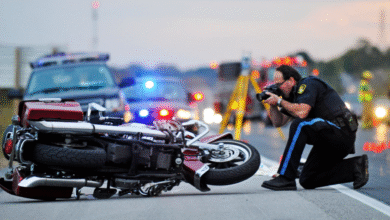5 Must-Ask Questions to Protect Yourself When Hiring Long-Distance Movers

Planning a long-distance move can be one of the most stressful life events. From packing your belongings to coordinating logistics, the process is full of challenges. Choosing a reliable moving company is crucial—not just to safeguard your valuables, but also to ensure a smooth and stress-free relocation. However, the moving industry is fraught with pitfalls, including unlicensed companies, hidden fees, and subpar service.
Why Licensing Matters
When hiring a moving company for a long-distance move, licensing should be your top priority. Licensed movers are regulated by government authorities, ensuring they meet industry standards and operate legally. In the United States, long-distance movers must have a valid USDOT (United States Department of Transportation) number, which you can verify on the Federal Motor Carrier Safety Administration (FMCSA) website. Similarly, in the UK, companies should be registered with the British Association of Removers (BAR) or equivalent bodies.
Key Question: “Are you fully licensed and registered to handle long-distance moves?”
To confirm their credentials, ask for their licence number and check it against official databases. This step is non-negotiable—hiring an unlicensed mover puts you at risk of lost or damaged belongings with little recourse for compensation.
Tip: Beware of companies that refuse to provide proof of licensing or delay answering this question.
Checking Reviews and Reputation
A moving company’s reputation is often the best indicator of its reliability, especially when planning a major life change like a long-distance move. Doing your due diligence is essential to ensure you select a trustworthy service provider. Online reviews and testimonials from previous customers provide valuable insights into their service quality. If you’re looking for long distance movers in Ontario, focus on companies with a proven track record of reliability and professionalism. Look for reviews on trusted platforms such as Google, Yelp, or Trustpilot, and pay close attention to patterns in feedback—frequent complaints about lost items, delays, or unprofessional behaviour are clear red flags.
Key Question: “Can you provide references or direct me to recent customer reviews?”
In addition to online reviews, ask the company for references from past clients. A reputable mover should have no hesitation in providing this information.
Bonus Tip: Check the company’s social media pages for real-time feedback and interactions with customers. This can give you an idea of how they handle issues and maintain communication.
Understanding Insurance Coverage
Long-distance moves inherently carry a higher risk of damage or loss. That’s why understanding a moving company’s insurance options is essential. Most movers offer basic liability coverage, which typically compensates a minimal amount per pound of damaged items. However, for valuable belongings, full-value protection is a better option as it covers the repair, replacement, or reimbursement of items based on their market value.
Key Question: “What kind of insurance coverage do you offer, and what does it include?”
Request a written policy outlining the coverage details, including any exclusions. It’s also a good idea to confirm the process for filing claims and the timeline for resolution.
Tip: If the company’s insurance is insufficient, consider purchasing additional coverage from a third-party provider.
Identifying Hidden Costs
One of the most common complaints about moving companies is unexpected charges. Some movers offer low initial estimates only to tack on hidden fees later, such as fuel surcharges, long-carry fees, or storage costs. To avoid this, always request a detailed breakdown of costs upfront.
Key Question: “Can you provide a detailed breakdown of your costs and guarantee no hidden fees?”
Reputable movers will offer a binding estimate or a “not-to-exceed” quote, which caps the final cost. This ensures transparency and protects you from surprise charges.
Tip: Be cautious of companies that provide vague or overly cheap quotes—they may be too good to be true.
Availability and Communication
Effective communication is vital during a long-distance move. Your movers should be easily reachable to address any concerns, provide updates, and resolve issues promptly. Companies with poor communication can leave you feeling frustrated and uncertain, especially during a time-sensitive move.
Key Question: “How will you keep me updated throughout the moving process?”
Look for movers who offer clear channels of communication, such as a dedicated point of contact, regular status updates, or customer support hotlines. A company’s willingness to communicate reflects its commitment to customer satisfaction.
Tip: Test their responsiveness by calling or emailing them with a few questions before hiring them. Their response time can be a good indicator of their reliability.
Hiring a reliable moving company is the foundation of a successful long-distance move. By asking the five questions outlined above, you can avoid scams, protect your belongings, and ensure a smoother relocation experience.
From verifying licensing and reviews to understanding insurance coverage and identifying hidden costs, these steps will empower you to make an informed decision. Clear communication is the final piece of the puzzle, ensuring that you’re kept in the loop throughout the moving process.




